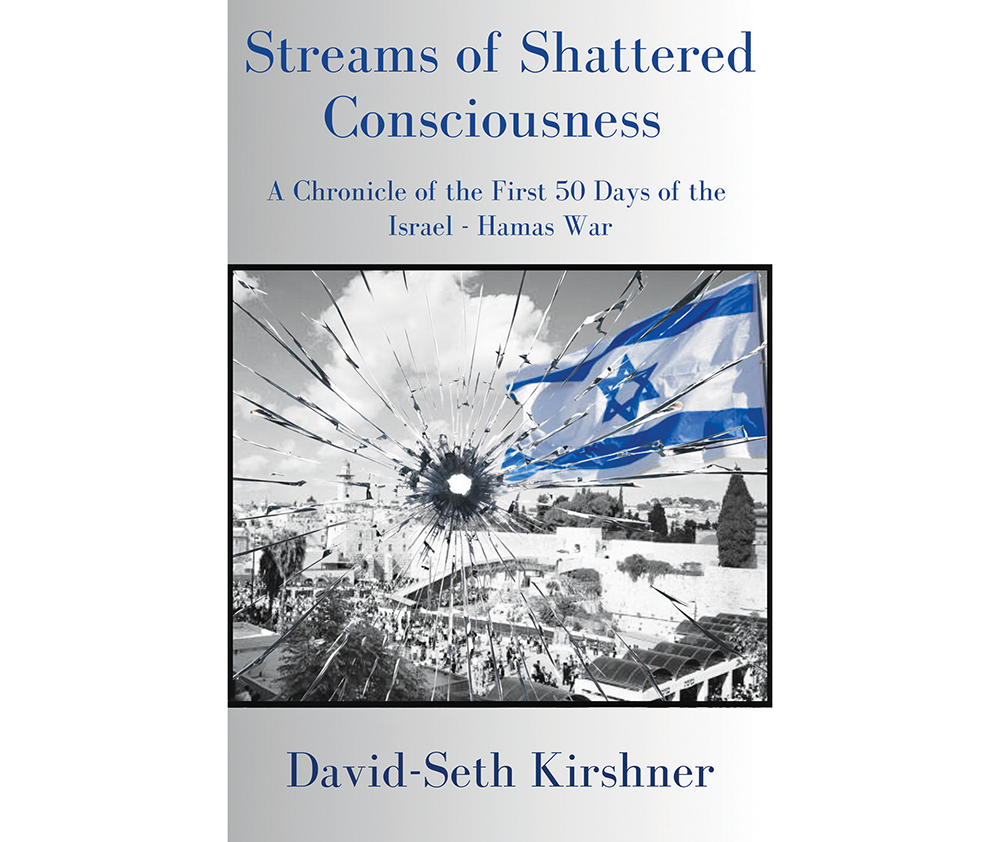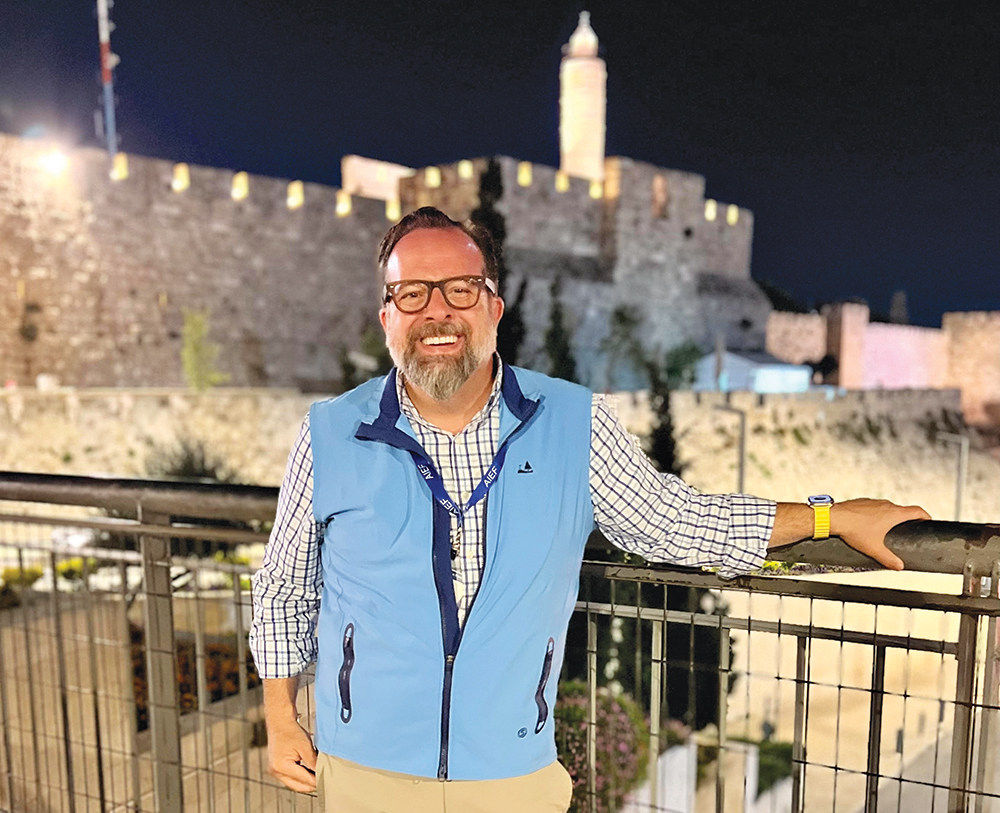
For Rabbi David-Seth Kirshner, his approaching 50th birthday was to be a joyous celebration of a milestone date.
Instead, that day, October 7, turned out to be one of emotional upheaval for Rabbi Kirshner, a member of the National Council of AIPAC. A groundswell of emotions surfaced as Israel again found itself embroiled in a war it did not start, much as it was on the day the rabbi was born.
“My mother was two-and-a-half weeks overdue, and October 6, 1973 she was sitting in shul on Yom Kippur when her water broke and I was born on October 7,” he said, just as Israel was attacked, touching off the Yom Kippur War.
So when Rabbi Kirshner woke up on October 7, 2023, the news was “gut-wrenching,” and his mood was anything but celebratory. He needed some way to express the emotions he was feeling.
“So what I did, I took this energy and frustration and worry and sense of betrayal and just wrote,” said Rabbi Kirshner, the senior religious leader of Temple Emanu-El of Closter. “I just needed an outlet and needed to share my feelings with my congregation.”
From that point on the words came pouring out as he wrote one entry each day for the next 50 days in what became a cathartic experience. Those 84,000 words became a 358-page book, “Streams of Shattered Consciousness: A Chronicle of the First 50 Days of the Israel-Hamas War.”
“I knew it was going to be a book by the 35th day, and I knew I had to stop at 50 because I couldn’t keep going,” he said.

Since its publication the book has sold 8,000 copies mainly through Jewish organizations and almost 50 Hillels, including those at Rutgers and Columbia Universities, and through rabbinical students. All proceeds will go toward his synagogue’s Israel fund, which has raised more than $2 million so far, most of which will be earmarked for treating Israeli trauma victims.
The book ponders questions ranging from why the national response to the 2018 shootings at Pittsburgh’s Tree of Life Synagogue was so different compared to the Hamas attack, and the impact the 2011 exchange of IDF soldier Gilad Shalit for 1,027 Palestinians prisoners may have had on the current hostilities. It explores the ethical dilemmas faced by Israel, offers a deeper understanding of the pain and suffering of innocent Israelis and Palestinians, and prompts Diaspora Jews to think about how the world has reacted and the challenges Jews face worldwide.
“It deals with many things, but they are all related,” said Rabbi Kirshner, a longtime advocate for Israel who has served on the New Jersey-Israel Commission.
He’s a regular visitor to Israel and has traveled there four times since the war broke out, including one with rabbinic colleagues and another with congregants. Rabbi Kirshner has met with wounded soldiers, hostage families and leaders, visiting various locales.
“We learned the country gets as much benefit from us coming as we get from going,” he explained. “We learned that it is incredibly complicated trying to fight a war when you’re also fighting for the release of the hostages like there is no war. It is a crippling paradox. We learned that if the war ends it doesn’t end the challenges. It doesn’t end the fear, especially in the north where Hezbollah is a problem.”
Rabbi Kirshner is past president of both the New York and New Jersey boards of rabbis and is on the executive committee of the Jewish Federations of North America. Although this is his first book, he has written articles for national and local publications and has been interviewed by various news outlets.
“Shattered Streams of Consciousness” is available on his website, streamsshattered.com, Amazon and xlibris.com.
Debra Rubin has had a long career in journalism writing for secular weekly and daily newspapers and Jewish publications. She most recently served as Middlesex/Monmouth bureau chief for the New Jersey Jewish News. She also worked with the media at several nonprofits, including serving as assistant public relations director of HIAS and assistant director of media relations at Yeshiva University.












